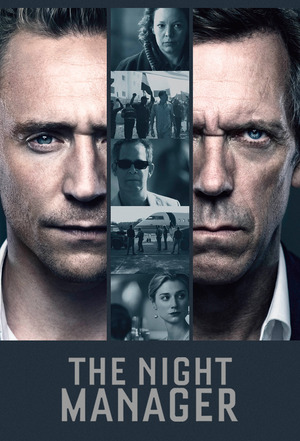
Created by: David Farr (based on the novel by John le Carré)
Starring: Tom Hiddleston, Hugh Laurie, Olivia Colman, Elizabeth Debicki
🕵️ Episode 1: Cairo’s Secret
The story begins in the Arab Spring–era Cairo, where Jonathan Pine, a former British soldier turned hotel night manager, is drawn into a conspiracy when a guest, Sophie, entrusts him with sensitive documents. These papers reveal illegal arms dealings connected to Richard Roper, an enigmatic British businessman.
Sophie is soon found murdered, and Pine, haunted by guilt, sends the evidence to British intelligence. This quietly ignites a global espionage operation led by Angela Burr, an intelligence officer with a personal vendetta against Roper.
💼 Episode 2: Infiltration Begins
Years later, Pine is working in a Swiss hotel when he encounters Roper again. Burr recruits him for a covert mission: to infiltrate Roper’s inner circle. Pine fakes a criminal identity and stages a violent act to win the trust of Roper’s network.
He soon enters the luxurious yet lethal world of arms trafficking, manipulating personas and navigating layers of trust and danger. The episode builds tension with every glance and exchange—Roper is charming but deadly, and his suspicions grow quickly.
🏝️ Episode 3: Playing the Game
Now part of Roper’s private island entourage, Pine plays a high-stakes psychological game. He carefully gathers intel while romancing Roper’s girlfriend Jed—both a complication and a potential informant.
Burr and her team work in the background, but MI6 higher-ups—many compromised—attempt to shut her down. The series cleverly critiques bureaucracy and corruption within Western intelligence agencies, adding realism and weight to the spy drama.
🔫 Episode 4: Tension Mounts
Pine’s position becomes increasingly precarious as Roper tests his loyalty. Meanwhile, Jed begins to suspect the truth and struggles with her own moral limits. Flashbacks reveal more about Roper’s ruthlessness, including how he manipulates business deals and silences dissenters.
The series leans heavily on psychological tension, with every character forced to question their motivations. Hugh Laurie’s performance is chillingly understated—a villain who smiles as he destroys lives.
🌍 Episode 5: Global Stakes
Deals go global, and Pine is brought deeper into Roper’s criminal infrastructure. He is tasked with overseeing arms logistics and must tread carefully to avoid exposing himself. Jed finds herself torn between fear and love, and finally decides to help Pine—at great personal risk.
Angela Burr’s operation faces sabotage from within the government. Her team operates like guerrilla spies, working in basements and with limited tools, highlighting the lonely burden of doing what's right in a broken system.
💥 Episode 6: Endgame
The final episode culminates in a high-stakes arms exchange where Pine plants decisive evidence. Roper believes he’s succeeded—until Burr’s team, with help from reluctant allies, arrests his entire network. Jed is rescued, Pine’s identity is revealed, and Roper is humiliated.
The show ends ambiguously: Roper is taken away by men who may or may not be official authorities, leaving viewers to question whether justice truly prevails in espionage. Pine walks away—not a hero, but a survivor marked by the duplicity he embraced to do good.
🎭 Thematic Analysis
- Moral Ambiguity: The series portrays espionage as a morally gray world where the ends rarely justify the means without cost.
- Dual Identity: Pine’s transformation is psychological, not just tactical. The mask he wears begins to shape who he becomes.
- Power and Control: From Roper’s manipulation to Burr’s resistance, power is depicted as fragile and easily corrupted.
- Colonial Echoes: The show critiques British and Western interference in global affairs, masked as diplomacy but driven by profit.
🎯 Final Thoughts
The Night Manager is a rare blend of high-gloss style and substantive spy drama. It elevates John le Carré’s narrative to cinematic intensity, bolstered by Tom Hiddleston’s performance as a conflicted operative and Hugh Laurie’s eerily calm portrayal of evil.
More than a thriller, it’s a character study of how people break—and how some wear masks so long they forget the face beneath. The suspense doesn’t come from action, but from knowing that one wrong word can cost everything.
In a world of hidden agendas and shattered loyalties, The Night Manager asks: What price must we pay to fight monsters without becoming one?